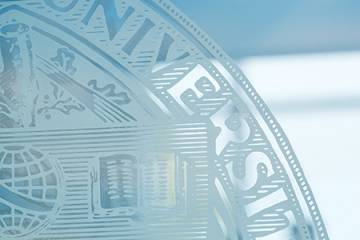Johns Hopkins University issued a statement Tuesday opposing new federal regulations that limit options for foreign students attending U.S. universities, calling the change in guidance a "draconian decision" that may affect the "vast majority" of the university's international students.
On Monday, the federal Student and Exchange Visitor Program, or SEVP, announced that the U.S. State Department "will not issue visas to students enrolled in schools and/or programs that are fully online for the fall semester nor will U.S. Customs and Border Protection permit these students to enter the United States." Foreign students currently in the U.S. who attend colleges that plan to operate fully online in the fall must either leave the country or "take other measures, such as transferring to a school with in-person instruction to remain in lawful status," the announcement said.
Additionally, students enrolled in colleges at which a mix of online and in-person course offerings are planned—a group that includes Johns Hopkins—must either attend at least one in-person course, regardless of whether it meets their academic needs, or leave the U.S. and study online from another country. Those same colleges may be forced to revert to online-only instruction with little notice should the public health situation deteriorate.
"This guidance dismisses the seriousness of the public health crisis in the United States and ignores the current restrictions on global travel due to consulate closures and other pandemic-related public health concerns," Johns Hopkins University President Ronald J. Daniels said. "International students are now faced with an impossible situation that causes undue stress and undermines their educational aims."
The rule applies to holders of two types of visas, including F-1 visas, which allow nonimmigrant students to pursue academic coursework.
The U.S. has the largest international student population in the world, with more than 1 million of the nation's higher education students—roughly 5.5% of all college students in the U.S. —coming from abroad, according to the nonprofit Institute of International Education.
Also see
"SEVP has shown an utter disregard for the welfare of international students pursuing excellence in American higher education institutions," JHU Provost Sunil Kumar said, "and for universities seeking to continue their missions in these most uncertain of times."
Complete Johns Hopkins University statement on SEVP guidance for fall 2020
Johns Hopkins University is deeply concerned by the guidance issued yesterday regarding the Student and Exchange Visitor Program (SEVP) for fall 2020 that may affect the vast majority of our international students. While there are a number of outstanding questions to be resolved regarding this rule and what it means for Johns Hopkins' students, we take significant issue with this draconian decision that has the potential to permanently and adversely affect the lives of international students.
Universities and their students, particularly those coming from abroad, face a challenge of unprecedented complexity as they determine how to continue the essential work of learning and research this fall. Higher educational institutions are each seeking the right balance between in-person, online and hybrid models of instruction based on their individual needs and the status of the COVID pandemic in their communities. Johns Hopkins plans to employ a variety of educational modalities this fall, with approaches varying program by program and student by student based on their particular circumstances, with the knowledge that the unpredictable nature of this virus and the American response to it leads to great uncertainty in the near future. It is entirely possible that universities across the nation, including ours, may need to shift back to an all-online approach if the pandemic worsens and threatens more lives.
"This guidance dismisses the seriousness of the public health crisis in the United States and ignores the current restrictions on global travel due to consulate closures and other pandemic-related public health concerns," said Johns Hopkins President Ronald J. Daniels, "International students are now faced with an impossible situation that causes undue stress and undermines their educational aims. Some students will be arbitrarily kept out of the country based on their institutions' necessary responses to a fast-evolving public health crisis, and others could find themselves in legal limbo in this country if the COVID pandemic takes a turn for the worse and their universities are forced to revert to online education."
SEVP recognized these realities in the spring when it provided the flexibility universities and their international students needed to cope with the unpredictable course of the pandemic, but the current guidance flies in the face of the continued seriousness of the COVID pandemic.
"We were hopeful that these policies would be continued in the fall, building in additional relief as requested by schools," said Johns Hopkins Provost Sunil Kumar. "Instead, SEVP has shown an utter disregard for the welfare of international students pursuing excellence in American higher education institutions, and for universities seeking to continue their missions in these most uncertain of times. If SEVP is under the impression that American higher education is returning to normal this fall, it could not be more mistaken."
"We are deeply committed to providing opportunities for the world's most talented scholars, and we will work closely with our international student population to navigate these unnecessary and disturbing disruptions to their educational pursuits while also employing all means available to reduce their impact," Daniels said.
We hope to provide broader guidance within this week. We remind our students of the resources available to them through the Office of International Services, ois.jhu.edu or 667-208-7001.
Posted in University News








